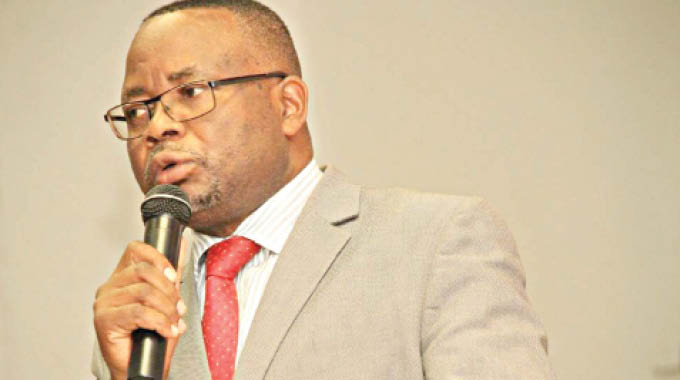EDITORIAL COMMENT: Education Bill a brilliant move

Our country has Africa’s highest literacy rate of 94 percent. This high ranking was made possible by the huge investment that was put into education by the Government since Independence in 1980. Before then, whites received the best education and had unfettered access to it. On the other hand, successive colonial governments placed impediments to blacks’ access to education. This resulted in only a few persons of colour going to school not only to be able to read, write and country but also to be able to acquire a skill with which to seek a decently paying job.
However, post-independence, the Government encouraged blacks to go to school. It also built more schools in previously underserved areas. Training of teachers was intensified as well. Even adults who had been denied education in the colonial era, were encouraged to go to school as well.
People paid as little as $1 per term to acquire primary education. Therefore, education costs were not a barrier to anyone attaining a Grade Seven certificate. Those who could not get that certificate failed because of other challenges such as sickness or mental illness.
However, there remained a small percentage of the population that, even in those circumstances, has not been in school. Some people worshipping at apostolic sects stand accused of this, as well as those in rigidly traditional settings. The Government has been fighting to convince the apostolics to send their children to school and for their adults to go to school themselves. The same message has been sent to traditionalists too.
It is regrettable that it has come to the attention of the Government that moral suasion has failed to work in some cases. Children continue to wallow in their illiteracy. They continue to be denied a future. They are condemned to a life of poverty, joblessness and hopelessness.
This is sad indeed but we are on course to getting that small percentage that is not in school into the classroom thanks to the Education Bill that is being debated in Parliament. The proposed law crucially removes basically all the excuses that some in the apostolic and traditional settings have used to deny their children an education – that they are so poor they cannot raise fees for them.
If the Bill is approved as proposed, primary education will now be State-funded and compulsory, and parents and guardians will be imprisoned if they fail to send their children to school.
On Thursday, the National Assembly accepted amendments from Proportional Representation legislator, Ms Priscilla Misihairabwi-Mushonga (MDC-T), which seek to criminalise the failure by parents or guardians to allow children to attain State-assisted basic education.
This came out during the Committee stage of the Education Bill, which was being steered by Primary and Secondary Education Minister Professor Paul Mavima.
The new clause now reads as follows: Section 5 (“Compulsory education”), of the principal Act is repealed and substituted with the following: –5 Compulsory Education (1) Every child shall be entitled to compulsory basic State-funded education. (2) Any parent who deprives their child the right to basic State-funded education shall be guilty of an offence and liable to a fine not exceeding level 6 or to imprisonment for a period not exceeding two years.”
We urge Parliament to quickly approve this proposed law so that children are sent to school, thus get liberated from the shackles of ignorance, illiteracy and stagnation.
We expect the executive arm of the State to be ready to implement the law. We are saying this because its full implementation will have financial implications on the State. More schools will have to be built to cater for more kids, while more teachers have to be recruited to teach the high numbers of kids who will from then on, be in school. Those teachers will have to be paid a salary every month; will have to be accommodated and so on.
Parents and guardians, especially those who are so poor they cannot afford to pay fees for their kids or charges, must be celebrating now that we will soon have a law that binds the Government to pay for the compulsory education of their children. Those who have been deliberately not sending their children to school because of religious or cultural beliefs must take the warning that if they continue in their uncivilised ways, they will be jailed for two long years while their children are taken to schools at public expense.
The law, especially the relevant clause is really a good one as it will further increase the already high national literacy rate.
However, literacy and numeracy are not all that one needs to be regarded as educated. From primary school, one needs to proceed to secondary and high school and further to higher and tertiary education. It is our hope that the Government will work out ways to ensure that access to secondary education is similarly expanded, the same for higher and tertiary education. With respect to higher and tertiary education, the Government recently took a decision to reintroduce student loans, a decision that will be useful in ensuring that more young adults acquire a professional skill.
That is great but we appear to see a gap in between – that is in the secondary and high school stage. We call for attention in that area too.










Comments